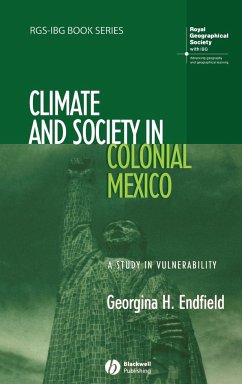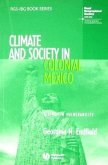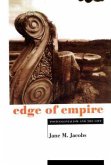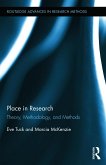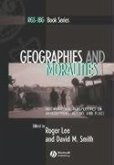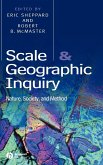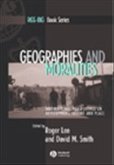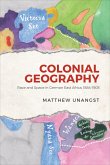The relationship between climate and society is complex. Time and again history has shown that responses to climatic changes and extreme weather events vary greatly between different social groups. A variety of factors - demographic, social, political and economic - influence how a society perceives, responds to, and copes with extreme weather events. With its series of floods and frosts, droughts and hurricanes, few societies have had their resilience and resourcefulness tested like Mexico's in her colonial era. Within this historical framework, Climate and Society in Colonial Mexico: A Study in Vulnerability provides a timely examination of the human impact of climate change and its contemporary implications. By considering three broadly differentiated case study regions - Chihuahua's arid Conchos Basin, the lush Oaxaca Valley, and Guanajuato in the Bajío of Mexico - the text offers valuable insights into how different societies articulate knowledge about climate and the environment and how they respond to climatic variability. Capitalizing on Mexico's rich colonial archives - many published here for the first time - the study provides a unique historical perspective into the complex interrelationships between climate and vulnerable societies. By examining the past, Climate and Society in Colonial Mexico offers valuable insights into contemporary climatic changes, environmental impacts, the vulnerability of societies, and our increasing concerns for the future of our planet.
Hinweis: Dieser Artikel kann nur an eine deutsche Lieferadresse ausgeliefert werden.
Hinweis: Dieser Artikel kann nur an eine deutsche Lieferadresse ausgeliefert werden.
"This impressive archival study on Mexico provides ahistorical perspective on environmental change and the culturalresponse in such detail and depth that it will be used by manydisciplines as global warming produces more frequent anddevastating climate events in Mesoamerica and elsewhere. SummingUp: Highly recommended." (CHOICE, February 2009)
"Mexico is well known for its vulnerability to a variety ofdisasters, ranging from droughts and floods to devastatingepidemics. Using extensive archival resources in Mexico and Spain,environmental historian Endfield (Univ. of Nottingham) focuses onthree regions with their diverse environments--the Rio ConchosBasin in the state of Chihuahua, Guanajuato and the Chichimecterritory, and the Valley of Oaxaca--to compare and contrast theimpact of climate crises on the economic and social-politicalsystems of the agrarian Indian and Spanish societies of colonialMexico from 1521 to 1820. The author discusses climate disasters ofthe late pre-Hispanic period, as well as the prehistory of thethree study regions. Repeated climate events resulted in societaldisruption, demographic changes, and conflict. Endfield shows howthe societies in these three regions coped with and adapted to therisks and hazards of extreme weather over the centuries. Thisimpressive archival study on Mexico provides a historicalperspective on environmental change and the cultural response insuch detail and depth that it will be used by many disciplines asglobal warming produces more frequent and devastating climateevents in Mesoamerica and elsewhere." (J. B. RichardsonIII, University of Pittsburgh, Choice, February2009) "This book provides a fascinating and empirically rich account ofhow vulnerabilities to variations in climate, especially to droughtand flood, were created and experienced over several centuries.Based on meticulous work in the historical archives, Georgina H.Endfield gives a distinctive long term perspective on theinteractions between nature and political economy that producedfood crises, water conflicts and devastating flood losses incolonial Mexico, and which echo down the years to illuminate ourunderstanding of the new crises of vulnerability and adaptation ina warming world."
-Diana Liverman, University of Oxford
"With a deft and informed pen, Endfield carries the readerrapidly through the escalating crises of colonial Mexico. Based onrich documentation Endfield sketches environmental disasters andepidemics, the looming problem of population growth and subsistenceshortfalls, and the illusion of economic growth. She illustrates,in a responsible and fascinating way, how vulnerability and humanresponse can serve as an empirical and conceptual approach to studycausality."
-Karl Butzer, The University of Texas at Austin
"Mexico is well known for its vulnerability to a variety ofdisasters, ranging from droughts and floods to devastatingepidemics. Using extensive archival resources in Mexico and Spain,environmental historian Endfield (Univ. of Nottingham) focuses onthree regions with their diverse environments--the Rio ConchosBasin in the state of Chihuahua, Guanajuato and the Chichimecterritory, and the Valley of Oaxaca--to compare and contrast theimpact of climate crises on the economic and social-politicalsystems of the agrarian Indian and Spanish societies of colonialMexico from 1521 to 1820. The author discusses climate disasters ofthe late pre-Hispanic period, as well as the prehistory of thethree study regions. Repeated climate events resulted in societaldisruption, demographic changes, and conflict. Endfield shows howthe societies in these three regions coped with and adapted to therisks and hazards of extreme weather over the centuries. Thisimpressive archival study on Mexico provides a historicalperspective on environmental change and the cultural response insuch detail and depth that it will be used by many disciplines asglobal warming produces more frequent and devastating climateevents in Mesoamerica and elsewhere." (J. B. RichardsonIII, University of Pittsburgh, Choice, February2009) "This book provides a fascinating and empirically rich account ofhow vulnerabilities to variations in climate, especially to droughtand flood, were created and experienced over several centuries.Based on meticulous work in the historical archives, Georgina H.Endfield gives a distinctive long term perspective on theinteractions between nature and political economy that producedfood crises, water conflicts and devastating flood losses incolonial Mexico, and which echo down the years to illuminate ourunderstanding of the new crises of vulnerability and adaptation ina warming world."
-Diana Liverman, University of Oxford
"With a deft and informed pen, Endfield carries the readerrapidly through the escalating crises of colonial Mexico. Based onrich documentation Endfield sketches environmental disasters andepidemics, the looming problem of population growth and subsistenceshortfalls, and the illusion of economic growth. She illustrates,in a responsible and fascinating way, how vulnerability and humanresponse can serve as an empirical and conceptual approach to studycausality."
-Karl Butzer, The University of Texas at Austin

